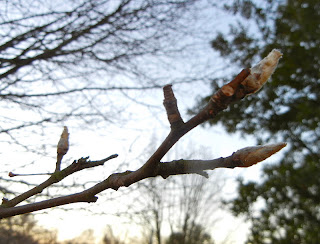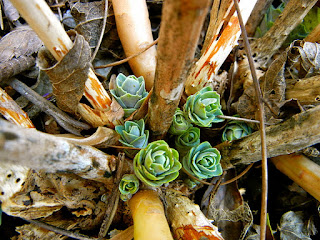My dear, gifted friend has been working for a really long time toward answering a call to a particular job. She started her journey toward this job many years ago; doing all that was in her power to prepare herself. She heard the call, she listened, she responded. It has been a rigorous application process, with many hoops. She jumped through them all without touching the sides; she made it through every cut, every ring of the party line phone. And this week, someone else was chosen.
 My sister heard a call, too. It led her to seminary as a, what-you-say, mature student. She did spectacularly well, and had the time of her life--A-cing Greek and Hebrew at the same time and falling in love with the idea of pastoring a church. And she has continued to say yes to pulpit supply and retreat leadership to further prepare. She ceaselessly educates herself and engages in spiritual direction. But the work that she hears calling her has not found her.
My sister heard a call, too. It led her to seminary as a, what-you-say, mature student. She did spectacularly well, and had the time of her life--A-cing Greek and Hebrew at the same time and falling in love with the idea of pastoring a church. And she has continued to say yes to pulpit supply and retreat leadership to further prepare. She ceaselessly educates herself and engages in spiritual direction. But the work that she hears calling her has not found her.For my friend and my sister, perhaps it is not important to unlock the mystery of why they haven't been chosen when the call is clearly for them. They aren't who the search committees are looking for; and though they have controlled all they can control, they cannot be what they are not.
 I go to the movies this weekend to see Extremely Loud and Incredibly Close. In the movie, nine-year-old Oskar's father dies in the Tower on 9-11. Oskar finds a key in his father's belongings and sets out on a search through the Burroughs of New York City for the lock it opens; sure that he will find something his father must have left for him that will make his death make sense. But instead his dad left him something to make Oskar’s life make sense. You will have to see the movie to discover what that is. The movie is wonderful. It should win the Oscar. (Oskar should win the Oscar, but he wasn't even nominated.) The movie won't win the award. It has everything a good movie needs. And it won't win. It's not what the voting members of the Academy are looking for. It cannot be what it is not.
I go to the movies this weekend to see Extremely Loud and Incredibly Close. In the movie, nine-year-old Oskar's father dies in the Tower on 9-11. Oskar finds a key in his father's belongings and sets out on a search through the Burroughs of New York City for the lock it opens; sure that he will find something his father must have left for him that will make his death make sense. But instead his dad left him something to make Oskar’s life make sense. You will have to see the movie to discover what that is. The movie is wonderful. It should win the Oscar. (Oskar should win the Oscar, but he wasn't even nominated.) The movie won't win the award. It has everything a good movie needs. And it won't win. It's not what the voting members of the Academy are looking for. It cannot be what it is not. It is another spring day in the garden yesterday, and I get out. I rake out some of the leaves that have been mulching the beds against the cold that didn't come. I find emerging growth buried under the leaves. And the banana tree has a new, tightly furled leaf amongst the dead leaves that whisper in the breeze. The Lenten rose that I thought was dying this year has more blooms than ever. I can't stop taking pictures of the centers of the rose; I think they are incredible in their complexity. The Carolina jasmine on the porch rail that doesn't get enough sun, is bud-filled. The early spring, before the trees leaf, has given it more light than usual. I splurge on three pots at Logan's that match my doors (well, they didn't have a purple one, I substitute red).
It is another spring day in the garden yesterday, and I get out. I rake out some of the leaves that have been mulching the beds against the cold that didn't come. I find emerging growth buried under the leaves. And the banana tree has a new, tightly furled leaf amongst the dead leaves that whisper in the breeze. The Lenten rose that I thought was dying this year has more blooms than ever. I can't stop taking pictures of the centers of the rose; I think they are incredible in their complexity. The Carolina jasmine on the porch rail that doesn't get enough sun, is bud-filled. The early spring, before the trees leaf, has given it more light than usual. I splurge on three pots at Logan's that match my doors (well, they didn't have a purple one, I substitute red).I head out in search of the sunrise Saturday morning. It is good to get back out at dawn after a month-long hiatus. But the sunrise is unspectacular. No clouds. It is a recurring reminder that beauty of the breath-taking variety requires clouds; perfectly clear does not
make a perfectly beautiful life. Finally I turn my back on the east, and there in the west--reflecting the rising sun--the sky is glowing pink. I notice the buds on the trees. Perhaps it is only when it is perfectly clear that where we thought we were going isn’t going to come to pass, that we have to concede that maybe we misinterpreted the call; and then we can let go and our eyes can open to new possibilities.
Oskar's father tells him that he has always loved science. Oskar asks his dad if he would have liked to have been a scientist. His dad replies,"I don't know. I became a jeweler." At first blush, it sounds like a call not taken, a disappointment, a passion not followed. But he finds other ways to be a scientist. He is a scientist. Oskar and his father have been on a treasure hunt to discover NYC's sixth Burrough; the invisible, not-obvious, have-to-dig-deeper treasure. When it becomes perfectly clear that the lock that fits the key Oskar found will not reveal anything for him, Oskar says, "I’m not sorry to have disappointment. It’s better than having nothing." In his disappointment he is freed to look at what his father really left for him: the key that unlocks the secret of the sixth Burrough.
My friend and my sister have grown while pursuing their call. They do not have nothing. My friend is free now to look in a new direction for what her call might be leading her to. She will find other ways to feed her passion and to support the people she wanted to serve in this job. Like the banana tree, there is new growth hidden among the dried up leaves; sprouting up from where last year's growth left off. My sister isn't there yet; I hope she will be soon. We base our security on certainty that we know where we are headed; and that if we keep at it, eventually we will arrive. It's hard and frightening to let go of the pursuit, and turn around and face west.
"How do geese know when to fly to the sun? Who tells them the seasons? How do we humans know when it is time to move on? As with the migrant birds, so surely with us, there is a voice within if only we would listen to it, that tells us certainly when to go forth into the unknown." -Elizabeth Kubler-Ross
*Inspired by Call Me, by Blondie, which I hear on an NPR interview after thinking about this post all day on Saturday. I love that. "Call me (call me) on the line/ Call me, call me any, anytime..."




































